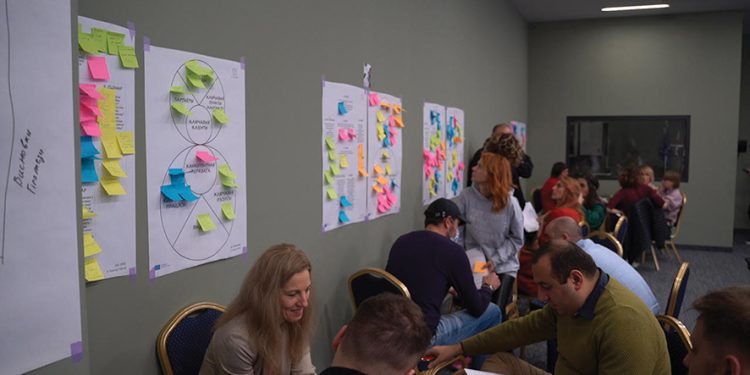On January 17 – 22, hotel Pine Astoria hosted a training for mentors in the framework of the EU funded project Greenhouse for Social Innovators. The training aimed to build the bridge between the representatives of traditional businesses and social enterprises by bringing together 17 founders of successful businesses from Ukraine, Georgia and Belarus to become future mentors for social enterprises.
Greenhouse for Social Innovators is a transformative initiative aimed at fostering active youth participation in the labor markets and social economies of Georgia, Belarus, and Ukraine. Its overarching goal is to contribute to sustainable and smart growth, social cohesion, and the reduction of inequalities in Eastern Partnership (EaP) societies.
The 6-day intensive training in Tbilisi included sessions on social entrepreneurship, impact measurement and diagnostics of enterprises.
After completing the training sessions, the mentors are to travel to Bootcamp in Warsaw, Poland, where, together with the selected social enterprises, will participate in the diagnostics of each enterprise.

Once the diagnostics are over, they will start the mentorship program with one of the selected social enterprises which will run for the next six months.
Greenhouse for Social Innovators seeks to empower local young social entrepreneurs and trainers in the three countries through the launch and implementation of an Acceleration program. This program places a special focus on sustainable green and digital social business models and international exchange opportunities through: Skills Development, contributing to enhancing the skills of social entrepreneurs in Georgia, Belarus, and Ukraine, aligning them with the principles of green and digital transition; Entrepreneurial and Career Support, improving the entrepreneurial and career management skills of its beneficiaries through targeted training and mentoring support to youth social startups, even those founded by political and war refugees from Belarus and Ukraine- support which enhances their economic resilience and social and environmental impact, and; Network Strengthening, building intraregional networks and partnerships between social innovators in the target countries, as well as Germany and the Netherlands. It aims to foster collaboration between young social startups and private businesses, including those relocated due to political turmoil in Belarus and the military conflict in Ukraine.
Project Partners are IBB gGmbH Dortmund (Germany), an organization with extensive experience in implementing projects in Belarus, and maintaining contact with beneficiaries; the Georgian Heritage Crafts Association (GHCA), which supports the craft sector, fosters the young generation’s engagement in social entrepreneurship, and strengthens the economic potential of heritage crafts products; and Ukraine Without Waste (UWW), a non-profit organization and social enterprise promoting waste management and conscious consumption through behavioral economics. It has won recognition and awards for its impactful work.
By Katie Ruth Davies














